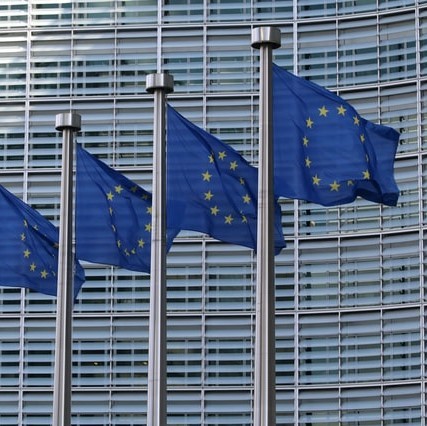EU sets out agenda to get ahead on 'deep tech'
European Innovation Agenda sets out 25 actions with a focus on scaling up startups, attracting new talent and simplifying listing rules.

The European Commission has just unveiled a new agenda that seeks to ensure the EU can attract the necessary skills and capital investment to become "a deep tech innovation leader," reducing its reliance on more advanced technology regions of the world such as the US and parts of Asia.
It's clearly a task that is easier said than done. According to a report by Science|Business, the EU's research and innovation commissioner, Mariya Gabriel, officially unveiled the European Innovation Agenda last week and conceded that the plan depends on a "coalition of the willing" to implement it.
As summarized by the publication, the five pillars of the new agenda are: to foster deep tech innovation; create innovator networks across Europe; attract talent; draw in investors; and revamp policies to promote innovation.
Gabriel declared that the agenda "will ensure innovators, start-ups and scale-ups" can become "global innovation leaders."
The agenda has now been officially adopted by the European Commission, which said it is designed to "position Europe as a leading player on the global innovation scene."
EU Competition Commissioner Margrethe Vestager, who also has the other snappy title of EVP for a Europe fit for the Digital Age, said the new Innovation Agenda "builds on the significant work done already on innovation in the last years and will help us accelerate our digital and green transition."
She added that the agenda "is rooted in the digital, physical and biological spheres and will enable us tackle better burning concerns, such as breaking the dependence from fossil fuels or securing our food supply in a sustainable way."
A big focus is being placed on scaling up technology startups and facilitating access to finance. In order to achieve this, the Commission will propose a Listing Act in the fourth quarter of 2022 that aims to "simplify and ease both initial and ongoing listing requirements," allow founders and families to retain control after listing, "while raising a larger amount of funds and enjoying the benefits associated to listing."
Want to know more about 5G? Check out our dedicated 5G content channel here on Light Reading.
The Commission believes that about €45 billion (US$45.9 billion) of funding for scaleups "could be mobilized by 2025 from untapped sources of private capital, and the cost of listing on public markets could also be reduced."
The agenda sets out 25 dedicated actions under five flagships that include funding the scaling up of European deep-tech startups; providing the necessary spaces for innovation such as regulatory sandboxes, testbeds, living labs and innovation procurement; supporting the creation of "regional innovation valleys"; fostering, attracting and retaining "deep tech talents," which includes a women entrepreneurship and leadership scheme; and improving policy-making tools.
State of independence
The agenda is set to build on existing and ongoing efforts at EU level to drive greater tech independence and control of digital platforms. In February, for example, the European Commission unveiled the European Chips Act that aims to "ensure the EU's security of supply, resilience and technological leadership in semiconductor technologies and applications."
What's more, two pieces of flagship EU legislation are now set to enter into force later in 2022 after they were adopted by the European Parliament this week: the Digital Services Act (DSA), which sets new standards "for the accountability of online platforms regarding illegal and harmful content"; and the Digital Markets Act (DMA), which focuses more on ensuring that these platforms behave in a fair way online.
The last remaining hurdle is the formal adoption of both acts by the Council of the European Union. The DSA will be directly applicable across the EU and will apply 15 months after it comes into force or from 1 January 2024 (whichever is later). The DMA will start to apply six months after it comes into force.
Related posts:
— Anne Morris, contributing editor, special to Light Reading
Read more about:
EuropeAbout the Author(s)
You May Also Like












